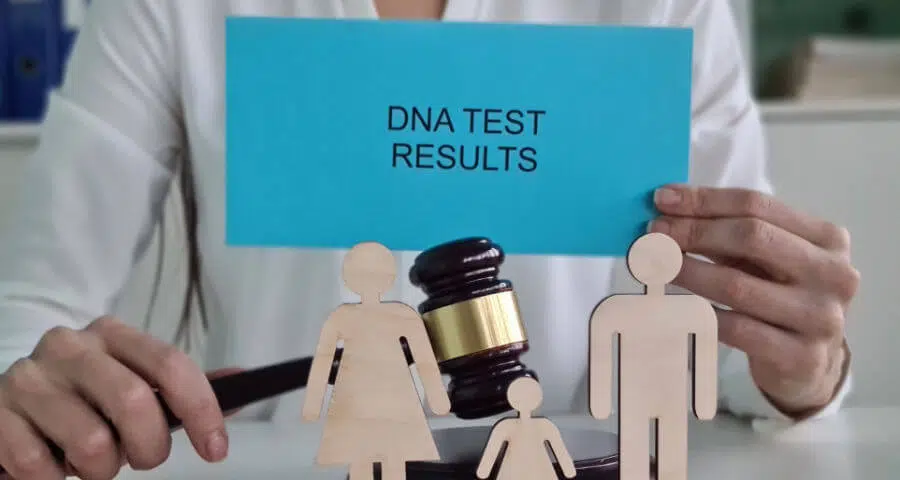Can a Mother Refuse a Court-Ordered Paternity Test?

The state of Texas does not automatically assign a father legal rights when children are born out of wedlock. In paternity suits between unmarried parents, the man will often need to take a DNA test to confirm that he is the child’s biological father.
If you are dealing with a paternity issue, you need the counsel of the Southlake paternity lawyers at Mims Ballew Hollingsworth⏐Family Law. Our attorneys have experience handling a wide range of paternity cases, serving for years in Southlake, Fort Worth, Denton, and nearby cities in Texas.
What is a Paternity Test?
A paternity test establishes whether a man is a child’s biological father. The test must be performed in either a medical setting, court or at a local Child Support Office. The parent and child will have their cheeks swabbed in order to determine if their DNA matches. The test is 99.9% effective in determining paternity. Results from a swab test are usually available within 4-6 weeks.
DNA stands for deoxyribonucleic acid, and it is the genetic material that we inherit from both mother and father. If the DNA results from the paternity test come back negative, then it can be legally confirmed that the man is not the child’s father. In this instance, the man will have no parental rights or responsibilities.
Denying a Paternity Test: Can a Mother Refuse a Paternity Test?
Can a mother refuse a paternity test? The answer depends on the relationship between the mother and father. If they are married, then the husband is assumed to be the child’s father.
Albeit, if the parents are unmarried, and the mother has custody, then the mother is well within her right to deny a paternity test. Since the father is not married to the mother, he has no legal rights as a parent.
This situation is changed if a judge issues a court order to have the father take the DNA test. In this situation, the mother will be in contempt of court if she ignores the court order and denies the child from taking the test.
What Happens if the Paternity Test is Positive?
Confirming paternity allows the father to gain legal rights and duties pertaining to his child.
Establishing yourself as the child’s father has many benefits:
- Your name can be legally added to the child’s birth certificate;
- Your child can be covered through your health care insurance;
- Your child can be named as a beneficiary on accounts and is entitled to an inheritance;
- The court can determine the father’s visitation rights and financial support due to the child; and
- The child can access the father’s medical history and be better informed in making medical decisions.
Ways to Get a Court-Ordered Paternity Test
A court-ordered paternity test can be attained by either filing a suit in court or by going through the Child Support Division of the Office of the Attorney General. If the parents both agree to the paternity test and decide to go through the Attorney General’s Office, they may not need to appear in court.
No matter your specific circumstances, it is always best to consult a Southlake paternity lawyer, he will be able to assist you in establishing your parental rights and advise you on your next steps.
A Southlake Paternity Lawyer Placing Your Child First
At Mims Ballew Hollingsworth⏐Family Law, we understand that determining paternity is crucial in caring for the needs of your child. We will guide you each step of the way through this emotionally taxing process. Want to learn more? Contact us today to schedule a consultation.


















